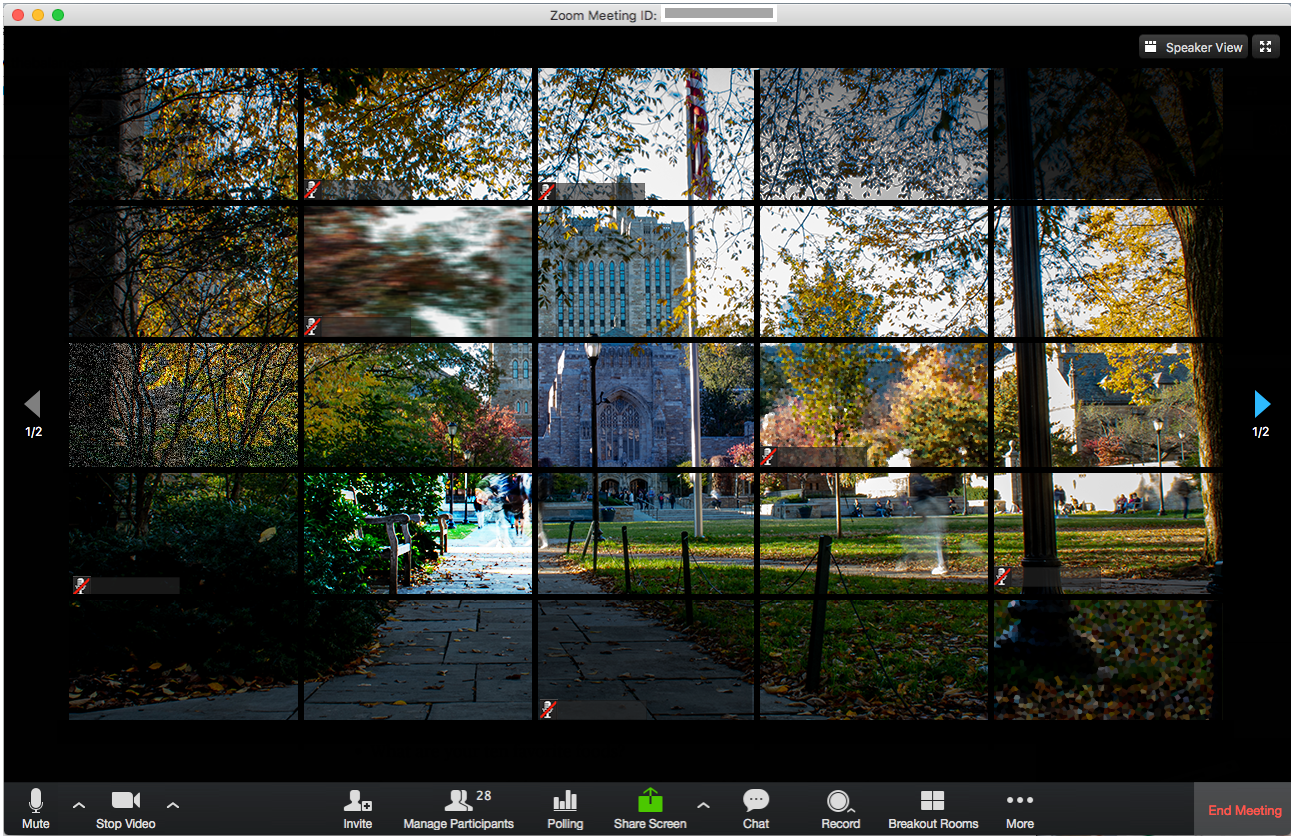Remote work isn’t going away, despite admin worries
A changing job market means that remote work options for staff will continue to stay in place, despite administrative concerns about “bringing people together.”

David Zheng, Senior Photographer
For Yale’s staff, Zoom isn’t going anywhere anytime soon.
Three senior administrators told the News that remote work will continue to be an option for some members of University staff in the foreseeable future following the peak years of the pandemic. But in spite of this, several aired concerns over how such options will affect work culture and staff relationships to the University’s mission, particularly as the school faces high turnover rates.
Despite his concern over how continued remote options may affect work culture among staff, Senior Vice President of Operations Jack Callahan expressed confidence that the University has been able to foster and maintain relationships with its staff.
“I do worry that we have to think through how do we maintain that going forward,” Callahan said. “And I think that’s particularly for those that may not be coming to work necessarily everyday.”
According to Callahan, there are four specific ways by which staff conduct their role. While some staff, such as hospitality workers, are required to work fully on campus, others have more flexibility, such as those working with faculty — who primarily work in-person during the academic year and remotely over the summer. An alternate hybrid option sees some staff work in person for two or three days a week, while the final option is a fully remote role.
Chief Information Officer John Barden told the News that hybrid work options are both practical and necessary for administrative leadership to implement.
Not only is it feasible for staff who work remotely to do the job effectively, Barden said, but it is also “competitively required” for them to offer it that way given the number of open positions in various staffing areas and the post pandemic appeal of more flexible work schedules.
And in his own department, Barden has seen this trend align.
“Information Security is a terrific example of that,” Barden said. “If we did not try to take that move to create the ability to work remotely, we would have a very hard time staffing that incredibly important function from the University.”
John Whelan, who serves as vice president of human resources, told the News that there is a request process to designate a role as largely remote. He added that it can be difficult for the University to compete for positions if it’s not willing to provide fully remote work, and with more organizations seeking workers on the job market, Yale has had to follow suit.
“We’ve been responsive,” Whelan said. “Because we feel like that’s the market we have to compete in.”
But administrators also expressed concern that following these market trends may lead to internal challenges.
For Callahan, this means thinking through how to “bring our teams together as a group” in the new work culture that presents itself on a “zoom screen.”
But University President Peter Salovey told the News that an uptick in remote work following the pandemic made it more difficult for staff to connect to the University’s mission. Relationships between staff and the Yale community that help people “get things done”, Salovey said, were weakened by the fact that many staff haven’t seen each other in “two and a half years.”
“It’s not that they’ve gone [or] become negative,” Salovey said. “They just aren’t as … close and strong as they once were.”
Salovey also mentioned that the University was working on solutions to these challenges.
The University’s Human Resources, in particular, is also hoping to combat these worries.
“We actually are trying to get people to put pen to paper,” Whelan said. “And we’re asking them some questions, not only about how do they stay connected to the constituents they support [but also] how’s that going to work?”
To Whelan, that means exploring a “really meaningful set of conversations” surrounding the implications of remote work around career development and support for individual staff. This can happen, Whelan suggested, by coming up with creative ways to bring people together, such as facilitated sessions on campus or hosting anchor days. Anchor days are those in which staff members in a department which largely operates remotely come together in the physical workplace.
Callahan also noted that hybrid work comes with different challenges as well. He said that university leaders have to think through how they can bring their teams together as a group and how to conduct hybrid meetings such that people in the room are “not more empowered” than those working over a screen.
But senior administrators expressed hope that regardless of remote trends, the University would be able to foster a face-to-face work environment, even if it is virtual.
“At the end of the day, humans are still humans and we crave interactions with each other,” Salovey said.
Yale employs 10,534 staff members.







